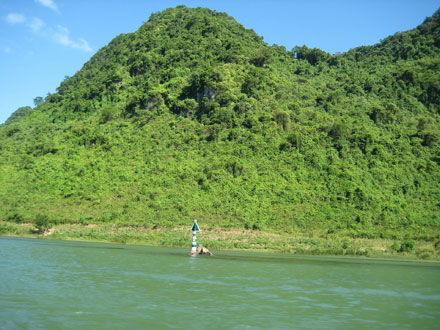
The United Nations (UN) was founded in 1945, to realise and act on the importance of unification and cooperation to solve problems impacting the world. While this pledge was initially in response to global conflict, the UN has evolved throughout the years to address all global crises and issues. In recent years, climate change has become one of the biggest challenges the UN has addressed and continues to face. Source: Steve Nicholson Director of Sustainability Solaris Paper for Timberbiz
In 2016, 175 parties from across the world signed the Paris Agreement signifying their intention to reduce climate change by keeping global temperatures below two degrees Celsius.
Global temperature warming is linked to rising carbon emissions. Therefore, a focus on forest cover loss and reducing deforestation is seen as a means to reduce temperature rise. While combating climate issues, forests also contribute greatly to biodiversity as homes to many fauna and flora which depend on them as their natural habitats.
However, we’re reminded that the current state of rainforest protection hangs by a thread.
An entire area equivalent to one football pitch of forest was lost every second in 2017. This is particularly prevalent in the South American Amazon Rainforest, which continues to be destroyed to make way for the economic intentions of businesses, with minimal attempts from government to prevent it.
In Peru, local gold mines have destroyed more than 170,000 acres of primary rainforest in the Peruvian Amazon over the past five years. In Brazil, New Forest Codes risk potentially reducing the amount of native vegetation that has to be conserved on private lands, possibly leading to more loss of the Amazon.
Even Australia cannot escape criticism, with three million hectares of forest in eastern Australia expected to be lost within 15 years. Whether it’s mining projects, agriculture or urbanisation, forests around the world are being decimated.
Unfortunately, for every country that makes positive progress towards reducing deforestation – take Indonesia for example, which has reported 60% reductions in forest coverage loss – there’s a country that is increasing its forest loss despite requests from the rest of the world.
What’s become apparent is that there is a disconnect between the goals of global agreements, government’s willingness to incorporate these goals, and pressure from local businesses.
While nations are more than willing to sign global agreements to symbolically show they are committed to environmental protection, there has been a lag when transitioning goals into effective policies. Whether that’s because new governments take control after the agreement is signed and they don’t want to honour their predecessor’s agreements, or existing policies contradict agreement requirements, the lack of a binding principle often makes global agreements symbolic rather than immediately actionable.
Governments must make a greater effort to ratify and implement global agreements into their policies, so they can hold themselves accountable.
Further, governments, businesses and environmental protection organisations are often at odds on forest conservation. Since the industrial revolution organisations have been dramatically increasing production outputs at the detriment of the environment. While most governments have stepped in and attempted to balance economic growth with environmental protection, the destruction of the Amazon shows it is more difficult for developing countries to find this balance.
Governments must work together with businesses in order to identify how to best continue to allow them to prosper, while reducing the environmental impact of their actions. Compromise is important for both sides, allocating enough land for businesses to further develop, while ensuring forests are adequately protected to give endangered species and native wildlife, like koalas, areas to thrive.
Protecting the planet’s forests will only be possible through programs that encourage government and business collaboration. The reduction of Indonesia’s forest coverage loss, for example, was only possible through the Indonesian government and local businesses working together to achieve a common agreement. Governments must be more proactive and dedicated to integrating goals of global agreements into realistic policies, and businesses must make greater efforts to help governments meet their targets.
Forests provide a natural habitat for many native animals and plants, while also helping to reduce the effects of climate change. If biodiversity is to be preserved, and global warming reduced, more must be done to find a balance between economy growth and environmental sustainability.





